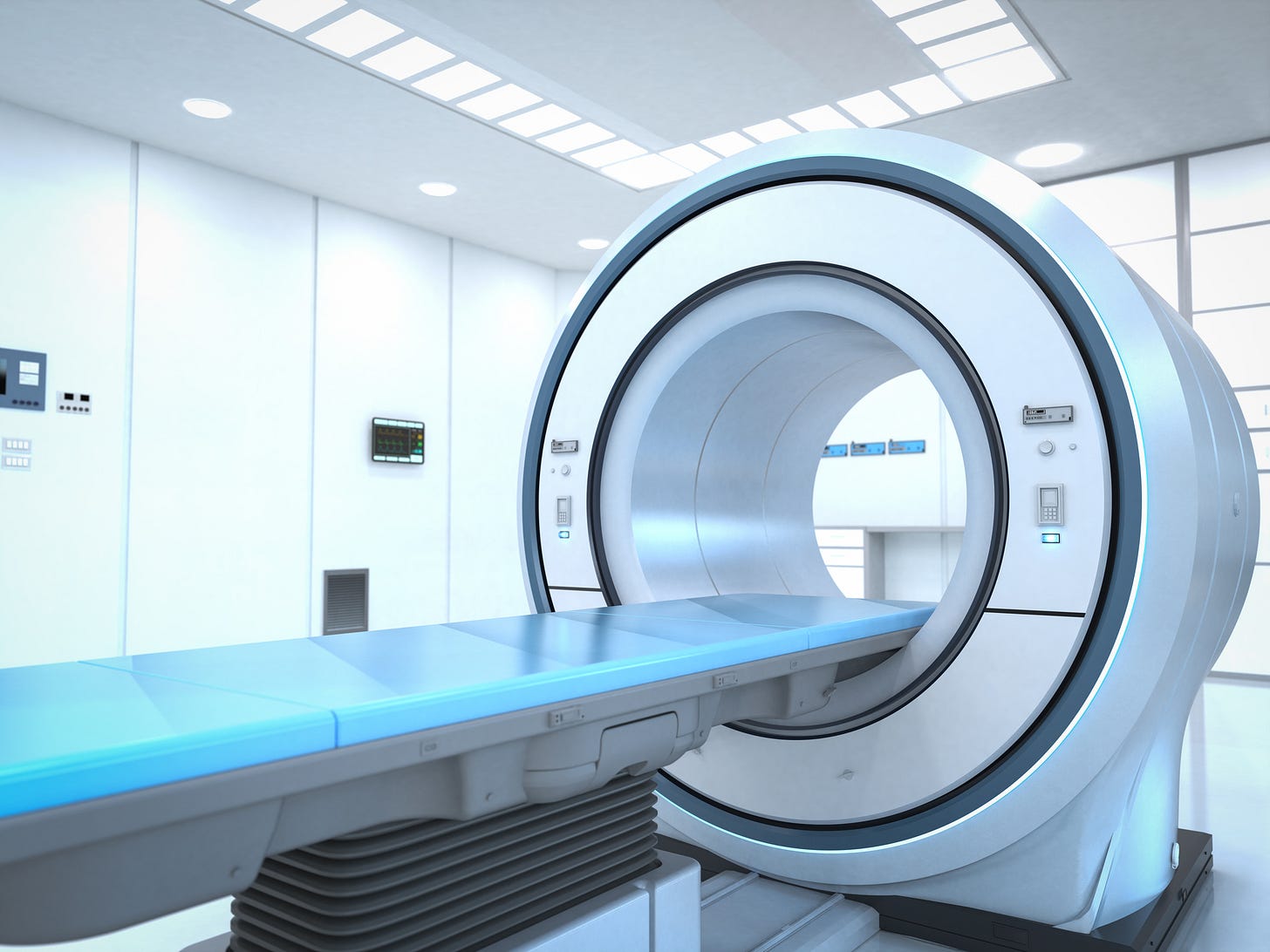Now, let’s be fair, the digitisation of the NHS has come on in leaps and bounds over the last few years, accelerated by the pandemic which made innovations such as remote consultations a necessity rather than just an optional add-on. Records are finally being digitised, and patient communication is improving. But let me give you one anecdote which suggests there’s a way to go yet before we see a paperless health service.
This week I was due to have an MRI scan, a regular event in the monitoring of an ocular melanoma first diagnosed in 2005. Lately, this has taken place at UCLH, an ultramodern hospital with great facilities. In the runup to the big day I received several text messages reminding me to turn up and telling me that missed appointments cost the NHS £500 each.
I was also getting increasingly urgent emails telling me to log in to the MyCare platform, a clunky process involving getting a verification code sent to your phone. Once in, I found more details about my forthcoming encounter with the MRI machine, including a request to fill in a questionnaire. This was the lengthy form you always have to complete before being locked inside the giant magnet to make sure you have not a trace of metal inside your body, not even a coloured contact lens (who knew they contained metal?)
The portal was most insistent that I answered every question and submitted the form, even nudging me to get on with it when I left the questionnaire for a day. And you can see why - an MRI machine is a very expensive piece of kit, with the Siemens model I encountered at UCLH costing over £1 million. So it is vital to use it as efficiently as possible and having patients go through a necessary but time-consuming bit of. bureaucracy at home, rather than having them arrive at the hospital only to remember that they still have a rod in their leg after that operation last year, seems very sensible.
So I turned up at the medical imaging department in the basement of a tower block on Euston Road confident that I had done my digital duty and everything would go smoothly. How wrong I was. The receptionist asked me whether I had filled in the online questionnaire and I smiled and nodded. But then he had a question which wiped the smile off my face - he wanted to know whether I had printed it out and brought it with me.
Errr, no, of course not - I’d submitted it online as the MyCare portal had requested. Then came the killer revelation - “the radiographers don’t have access to MyCare” explained the receptionist. “Isn’t that a bit daft?” I said in my rather understated British manner. He smiled somewhat ruefully, handed me the usual long form , and hunted down a pen for me.
Later, after I had gone through that form with a very nice and efficient radiographer, removed my clothes and my wedding ring, put on a dressing gown and had a needle inserted in my arm to pump dye into me, I had time to think. Well actually I spent most of the next half hour inside the metal tube obeying instructions to hold my breath and hoping the infernal racket from the MRI machine would soon stop. But I did ask myself one question - who designs an online platform facilitating an exchange of information between patients and medical staff but stipulates that the key audience for that data, the radiographers, should not be able to access it? Answers via carrier pigeon - or fax machine - to me.





Similar experiences with the NHS and Diabetes care. For patients the technology is moving progressively forward: I can see my glucose data live from my continuous glucose monitor and glucose meter, dosage data from my insulin pump, exercise data from Fitbit/Apple Watch, my food diary, all in the same place in a diabetes app called Glooko. Glooko then pushes this data to my GP and consultant clinics.
To date, not one GP or clinic has been able to access this data. Not because they aren't receiving it, more that they don't know how to log into Glooko. Next time I might make a slide deck.
My comment will no doubt result in another “Oh really” but here goes. On this side of the pond we get music, of our choice (oldies but goodies is my favorite), piped in while we’re getting an MRI.
Jerry… from Wellesley, MA,USA